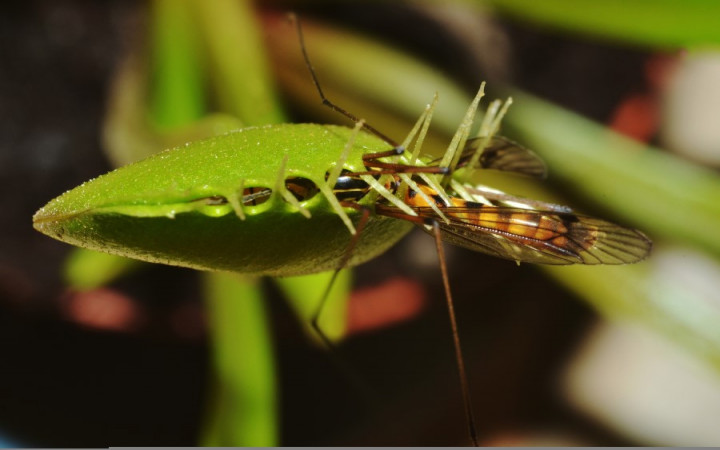Today’s Wonder of the Day was inspired by Cindy. Cindy Wonders, “Can plants eat insects?” Thanks for WONDERing with us, Cindy!
When you think of a jungle adventure, what comes to mind? Swinging around from tree to tree on vines? Gorgeous birds flying through the air? Monkeys and other exotic creatures prowling through the dense forest?
Or do you think of plants? Probably not, right? After all, plants aren't the most exciting living things in the world. Or are they? They just sit there and soak up water and nutrients from the soil and the sun, right? Or do some plants do more?
Would you believe that there are some plants that eat insects and even small animals from time to time? It's true! We call these exotic things carnivorous plants. Although most carnivorous plants eat small insects, larger carnivorous plants in tropical areas have been known to capture rats, birds, and frogs.
One carnivorous plant that many students are familiar with is the Venus flytrap. Its unique “jaws" can be triggered by flies and other small insects. Once its jaws close on its prey, the Venus flytrap secretes enzymes that break down the insect into a goo that can be absorbed for its nutrients.
There are several other examples of carnivorous plants. The pitcher plant, for example, has leaves like champagne flutes, which can capture insects. Sundews, on the other hand, trap their victims with sticky tentacles. Bladderworts grow in ponds and streams, where they suck in their prey like underwater vacuum cleaners.
Carnivorous plants tend to grow in areas where the soil is very thin and lacks necessary nutrients. To survive, these plants must find other sources for the nutrients they need. Trapping and digesting insects allows these unique plants to survive. Unfortunately, human and environmental factors continue to threaten the limited environments where you can find wild carnivorous plants.
For many people, the thought of a plant eating an animal seems very strange. In fact, more than one person has turned the idea into a scary story or movie. Don't worry, though, carnivorous plants don't pose any danger to humans. Unless you're the size of a tiny insect, you don't have to worry about falling prey to a Venus flytrap or a pitcher plant.




